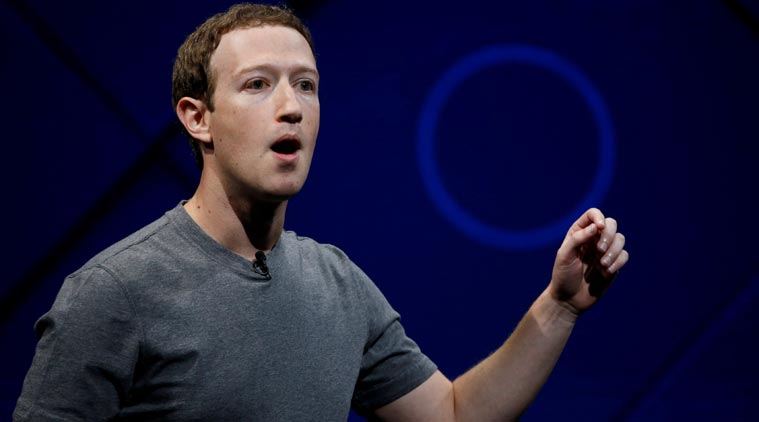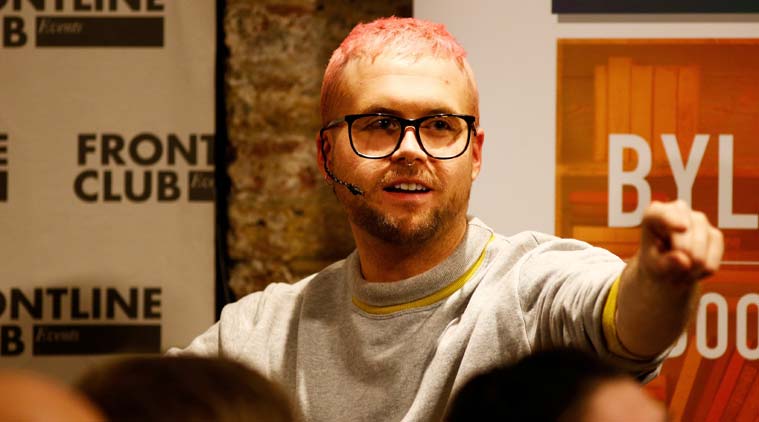 Facebook Cambridge Analytica data leaks: The deadly mix of algorithms, user data and fake news. (Image source: Reuters)
Facebook Cambridge Analytica data leaks: The deadly mix of algorithms, user data and fake news. (Image source: Reuters)
Facebook is facing the heat on both sides of the Atlantic after it has come to light that UK-based firm Cambridge Analytica illegally harvested profiles and data of some 50 million users in order to create effective election campaigns for the Trump and Pro-Brexit teams. Reports from the New York Times and the Observer in UK show that Cambridge Analytica used this data to create misleading political ads, which may have swung the election results in favour of its clients.
While Facebook denies that there has been any data breach, the question of how user data on the social network is being used by third-parties is one that will need urgent examination in light of what has happened. The Cambridge Analytica incident also underlines how raw Facebook data, which one would have naively presumed as worthless, can be used to create some powerful political tools to manipulate democratic processes. It also explains why US senators and the UK’s Parliamentary Committee on Digital, Culture, Media and Sport want Mark Zuckerberg to testify about the incident. Talks about possible regulation for social media networks have already begun.
The Cambridge Analytica incident calls for renewed debate on social networks and their impact on the global political landscape. Facebook, Google, Twitter have already been under fire since 2016 over the spread of fake news and whether this helped US President Donald Trump win the election. In India too, there are similar concerns over fake news proliferating platforms like YouTube, WhatsApp, Twitter and how they are shaping the understanding of those who consume such content.
 The Cambridge Analytica incident calls for renewed debate on social networks and their impact on the global political landscape. Facebook CEO Mark Zuckerberg in this file photo. (Image source: Reuters)
The Cambridge Analytica incident calls for renewed debate on social networks and their impact on the global political landscape. Facebook CEO Mark Zuckerberg in this file photo. (Image source: Reuters)
But the latest incident brings to light how some of this fake news can be targeted more effectively by looking at the things we share. Our likes, be it around books or television shows listed as part of Facebook profiles, or the article links we share on a daily basis, can reveal a lot about our personality, and apparently our political inclination as well. Facebook might insist there is not data breach as such, meaning no one hacked into its networks to steal data, but the implications of the Cambridge Analytica incident will serve as a warning for all democracies.
One thing that needs to be made clear is what while Facebook users might give consent to their basic profile information when they agree to an app or take a quiz on the network, what they are not agreeing to is a possibility for future manipulation using their very own data against them. And that’s exactly what has happened in this case.
Christopher Wylie, the whistleblower who revealed details about the entire network and operation has told the Guardian that the company, was able to successfully “exploit Facebook” and build models to target the “inner demons” of users and what they knew about them. The company relied on a quiz called ‘This is your digital life’ to harvest data. It also accessed data of a user’s friends, which was explicitly against Facebook terms. The raw data that the firm accessed also allowed it to use algorithms to target those who were identified as swing voters by creating just the right messages for them.
 Christopher Wylie, a whistleblower who formerly worked with Cambridge Analytica, the consulting firm that is said to have harvested private information from more than 50 million Facebook users, speaks at the Frontline Club in London. (Image source: Reuters)
Christopher Wylie, a whistleblower who formerly worked with Cambridge Analytica, the consulting firm that is said to have harvested private information from more than 50 million Facebook users, speaks at the Frontline Club in London. (Image source: Reuters)
The last bit in particular shows the scary potential of all that raw data from social networks. What it suggests is that it is possible to create political ads for social media networks tailored to exploit a user’s bias or weakness. Further, these new models of political messages can even help swing the campaign in favour of a particular candidate without the user perhaps even realising that there is a political tinge.
This is in stark contrast to traditional medium of canvassing like television ads or print or posters, where a political ad is clearly labeled as such and at least the user is aware there is a political message involved. But in the world of social networks where fake news spreads faster than real news, these hidden political messages can often resonate deeper. A potent mix of data, algorithm and blend of fake news can be used to target potential voters in each campaign.
The firm even lists an India case study for 2010 where its “client achieved a landslide victory, with over 90% of total seats targeted by CA being won.” In India, the client was JD-U, and while Cambridge Analytica was officially formed in 2013, its parent company Strategic Communications Laboratories (SCL) had worked in India in partnership with a company named Ovleno Business Intelligence (OBI). The clients of OBI are BJP, Congress and Janata Dal (United), according to the website.
In the US and Europe there’s now a serious outcry against Facebook and its data usage policies. While it is clear that everything is not right with how the world’s biggest social network operates, the scale of the platform just adds to the problem. Add machine learning and artificial intelligence to the mix of data from billions of people and we know the fears are no longer limited to the realm of science fiction.